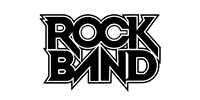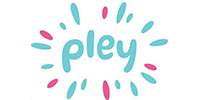Cooperative Design Fundamentals
Build positive-sum experiences with 5 actionable techniques
Discover a different way to play
We’re all familiar with competitive, zero-sum game mechanics like points, leaderboards & head-to-head contests.
But there’s an entirely different way to play that’s motivated by collaborating with partners – not crushing opponents.
In this short, high-impact course you’ll learn the foundations of positive-sum design & equip yourself with 5 actionable techniques for building cooperation into your experience.

Help your customers win together
For people accustomed to leaderboards & ranking systems, cooperative mechanics can seem unfamiliar & inaccessible.
That’s why I put together this short, accessible course on the basics of cooperative design.
You’ll learn how to leverage 5 techniques for designing positive-sum experiences
- help your players compete against the system
- build shared outcomes & resources into your systems
- offer synergistic roles to keep customers engaged
- use cooperative social gestures like Share, Like & Dance
- introduce cooperative statistics to bring people together

Build positive-sum experiences
In this course, you’ll build your cooperative design skills with these helpful, accessible resources:
- short-form videos that teach you the basics
- a step-by-step playbook so you can apply this to your work
- detailed Case Studies that show you Coop Design in action
- a private peer community where you get answers & support
Start putting cooperative design work for you.

Course Curriculum: 5 Foundational Techniques

TECHNIQUE 1
Compete with the System
In the best cooperative games, the challenge comes in the form of a central narrative or group challenge – something that motivates a group of people to band together and beat the system.

TECHNIQUE 2
Leverage shared resources & outcomes
Resource management is a core driver in game design, and in many real-world activities. To get started, identify the collaborative social actions that your environment offers people – and tie them to complementary activities – like building, collecting, and curating.

TECHNIQUE 3
Create synergistic roles
The most familiar example of synergistic roles is sports teams: each position has a specific role to play – and they all work together to reach their collective goals.

TECHNIQUE 4
Offer Cooperative Social Gestures
If you want your players to collaborate and support each other, avoid the verbs of competition – focus instead on collaborative gestures and actions. and connect those to associated verbs and actions related to Self-Expression and Exploration.

TECHNIQUE 5
Build group identity with positive-sum stats
Games based on competition use zero-sum stats like points and leaderboards to juice the competitive feelings of players. In contrast, a cooperative game takes the player on a journey that’s built around shared goals, working with partners – and winning together.

CASE STUDY
Cooperative Crowd-Sourcing Platform: Kickstarter
We analyze how crowdfunding platform Kickstarter weaves cooperative game mechanics into its customer experience.
GET REAL RESULTS
These companies used Game Thinking techniques…
…and so can you!
I’m excited to work with you
Hi. I’m Amy Jo Kim—social game designer, entrepreneur, and startup coach. I’ve worked with dozens of entrepreneurs to bring their ideas to life. Through trial-and-error, we’ve learned what works—and what doesn’t—in the early stage of innovation.
Now we’ve embedded our knowledge, process and best shortcuts into a powerful and flexible online program—accessible to startups, game studios, accelerators, and companies worldwide. If you’re creating an innovative product, the Game Thinking Masterclass will help you create a product that delights your early, passionate customers—and that’s the single best way to increase your chances of success.
I’m deeply passionate about helping entrepreneurs worldwide create compelling and successful products. I look forward to helping you and your team make faster, smarter product decisions and accelerate your path towards product/market fit.
MASTER THE ART OF COOPERATIVE DESIGN
Enroll now in Cooperative Design Fundamentals💥
Once you enroll, you’ll immediately get access to these learning materials:
- short, easy-to-understand videos that explain the basics
- In-depth Case Studies that demonstrate Cooperative Design in practice
- A step-by-step playbook to help you apply Coop Design to your work
- Feedback & support in our private peer community
Enroll now for $99
includes lifetime access to course materials
It helped me solve tough problems in my game design work – great payoff for the time investment.

Duncan Pond
Game Designer @ Ubisoft













